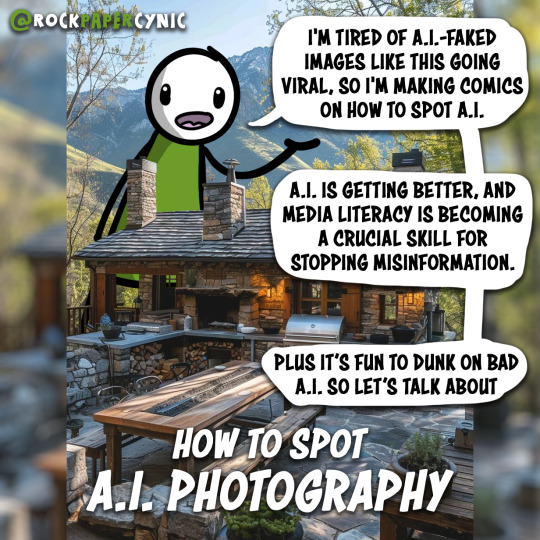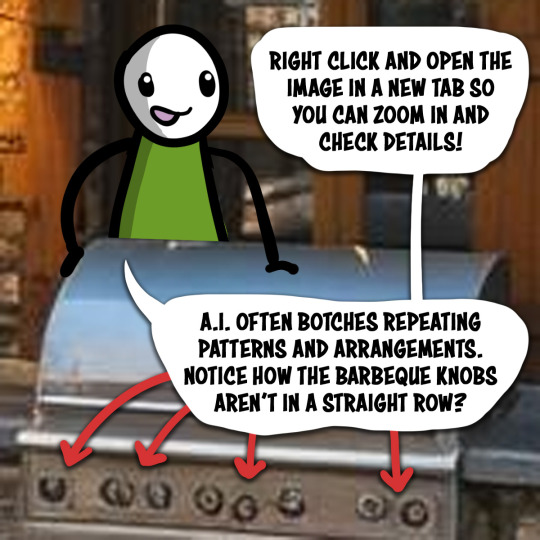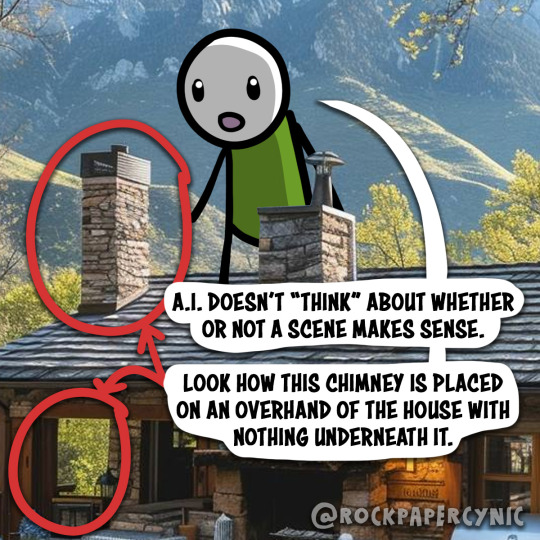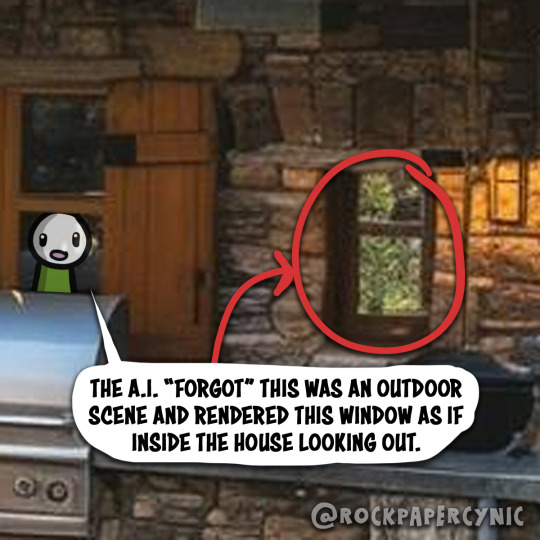#media information literacy
Explore tagged Tumblr posts
Text
Media and information literacy as expression of freedom of speech
Technology is one of the important things that have emerged in today's modern era. Related to this word is the presence of what we call the media, which helps us get different information and learn about different issues that are happening around us. With the help of the media, we are able to open our eyes to problems that we continue to ignore and do not apply competent solutions to. On the other hand, one of the words related to this is information, which is about the things that we always need and look for to learn. These two have an important contribution to media information literacy because they help us better analyze the things we see on the internet.
In today's digital age, being a media and information literate individual is not just a personal skill; it's a civic responsibility. Media and information literacy (MIL) is the cornerstone of a thriving democracy, as it empowers individuals to express themselves freely and contribute positively to their communities and countries. In this reaction paper, we will explore how being media and information literate is an expression of freedom of speech and discuss the invaluable contributions such individuals can make to society.
One way to express our freedom of speech is through media and information literacy. It gives us independence to share our own thoughts, opinions and suggestions. It also gives us freedom to voice out, especially when we need to address something that we are in favor of or something that we oppose. Keep in mind that we must be competent when accessing and assessing the media and information while making use of our right. Being responsible and careful are also needed before disseminating your own beliefs. In addition, we should be able to distinguish or identify which are the information that must be kept to yourself and which are proper to express in the right way.
People who possess media and information literacy, or MIL, are better able to analyze and evaluate the media. A person who is media and information literate may be skilled at creating their own messaging. In today's world, media and information literacy is seen as a very important ability and competency. Citizens who are media and information literate have the skills necessary to take full advantage of media and information sources and to exercise their fundamental human rights. To participate in a digital society, one must be literate in information and media. To do this, one must be able to use, understand, research, create, communicate, and think critically. It's crucial to be able to access, organize, analyze, and create communications in an effective manner.
Literacy plays a pivotal role in effective communication. It enables individuals to express thoughts, emotions, and ideas clearly. Without literacy, misunderstandings can arise, hindering meaningful interactions. Strong literacy skills also aid in accessing information from some sources, whether it be books, the internet, or other written materials. In a digital age, literacy extends to digital media, enhancing one's ability to navigate and communicate online. When people are media literate, they can engage in more meaningful and constructive dialogues. Literacy is the foundation of successful communication, promoting understanding, empathy, and the exchange of knowledge in a diverse world.
In conclusion, there is an innate connection between freedom of expression and media and information literacy. Everyone has the right to express themselves freely. This freedom encompasses the ability to express one's beliefs without interference from others as well as the freedom to gather, share, and receive knowledge across all boundaries and media. People who are media and information literate (MIL) have the knowledge and abilities to comprehend the production and dissemination of information. Additionally, it educates the public on the legislation required to support a free and independent media.
Disclaimer: The blog or article above is a form of reflection paper and just for academic porpoises only and did not conduct any formal research. The reflection paper is submitted at the S.Y. 2023-2024 for the grade 12 subject Media Information Literacy (MIL).
2 notes
·
View notes
Text
CAMERA WORKS OR CAMERA ANGLES FOR SHOOTING A FILM
0 notes
Text

EVOLUTION OF TRADITIONAL TO NEW MEDIA
0 notes
Text





CONTRIBUTION TO THE SOCIETY AND THE NATION AS A MEDIA AND INFORMATION LITERATE
1 note
·
View note
Text








There's an epidemic of AI-made photographs on this platform. Right now, they're mostly used for farming clicks, but as A.I. models get better at faking images, be prepared for a spread of scams, misinformation and propaganda.
Here are some tricks for spotting AI!
4K notes
·
View notes
Text














Anti-literacy laws in many slave states before and during the American Civil War affected slaves, freedmen, and in some cases all people of color. Some laws arose from concerns that literate slaves could forge the documents required to escape to a free state. According to William M. Banks, "Many slaves who learned to write did indeed achieve freedom by this method. The wanted posters for runaways often mentioned whether the escapee could write." Anti-literacy laws also arose from fears of slave insurrection, particularly around the time of abolitionist David Walker's 1829 publication of Appeal to the Colored Citizens of the World, which openly advocated rebellion, and Nat Turner's Rebellion of 1831.
The United States is the only country known to have had anti-literacy laws.


Significant anti-African laws include:
1829, Georgia: Prohibited teaching Africans to read, punished by fine and imprisonment
1830, Louisiana, North Carolina: passes law punishing anyone teaching Africans to read with fines, imprisonment or floggings
1832, Alabama and Virginia: Prohibited Europeans from teaching Africans to read or write, punished by fines and floggings
1833, Georgia: Prohibited Africans from working in reading or writing jobs (via an employment law), and prohibited teaching Africans, punished by fines and whippings (via an anti-literacy law)
1847, Missouri: Prohibited assembling or teaching slaves to read or write
Mississippi state law required a white person to serve up to a year in prison as "penalty for teaching a slave to read."
A 19th-century Virginia law specified: "[E]very assemblage of negroes for the purpose of instruction in reading or writing, or in the night time for any purpose, shall be an unlawful assembly. Any justice may issue his warrant to any office or other person, requiring him to enter any place where such assemblage may be, and seize any negro therein; and he, or any other justice, may order such negro to be punished with stripes."
In North Carolina, African people who disobeyed the law were sentenced to whipping while whites received a fine, jail time, or both.
AME Bishop William Henry Heard remembered from his enslaved childhood in Georgia that any slave caught writing "suffered the penalty of having his forefinger cut from his right hand." Other formerly enslaved people had similar memories of disfigurement and severe punishments for reading and writing.
Arkansas, Kentucky, and Tennessee were the only three slave states that did not enact a legal prohibition on educating slaves.
It is estimated that only 5% to 10% of enslaved African Americans became literate, to some degree, before the American Civil War

#afrakan#african#kemetic dreams#brownskin#afrakans#african culture#africans#brown skin#afrakan spirituality#anti literacy#media literacy#financial literacy#digital literacy#information literacy#early literacy#ban books#ban#united states#united states of america#geopolitics#america#usa#politics#slavery#prison abolition#abolition#american history#african american history#civil rights
94 notes
·
View notes
Text
Part of my job for the last 9 months was analyzing far right content to understand how they push conspiracy theories and motivate their voters and I have one major takeaway.
By eroding the trust in news media and journalists, Trump created what was essentially an alternate reality of people where extremists created their own "news media" filled with right wing ideology as the "only trusted news source"
If you thought Fox News was bad, you have never had to bear witness the awfulness of Real America's Voice or One America News. These are places where I swear to god a daily part of their news show is to sell you "medical emergency kits" with ivermectin in it because "you never know when the next medical emergency will happen" implying that the government will intentionally try and poison it's citizens if they have proper health insurance. They say the FBI is lying to you about crime statistics, they tell you every crime is being committed by illegal immigrants. They lie about the economy and tell you to invest in gold if you want have any money in the future. They say constantly that Trump's trials were a conspiracy against rights against him to be used as way to start to round up anyone who supports him.
The amount of times that Steve Bannon and Peter Navarro would claim that they "went to prison so you didn't have to" was immeasurable. These people committed crimes and were held accountable and twisted it to say they were victims "protecting the American people"
There are thousands of unhinged right wing podcasts that stream for hours every day on a site called Rumble which I guarantee most of you have never heard of. These shows get hundreds of thousands of views daily. And they legitimize themselves by having sitting congressmen and senators on their shows frequently along with "experts" from right wing policy groups you have never even heard of. Then, they legitimize each other by showing up on each others podcasts.
All this to say is that there are hundreds of thousands of people who only get their news and any information here. These are people who will praise Trump's "they're eating the dogs line" because it was memorable and therefore it means he won the debate. This alternative media market has insulated these people from ever seeing the truth. It is impossible to convince someone of something if they are in the most tightly held echo chamber where all they hear are lies and they are being told anything other than this specific "alternative media" is lying to you.
Simply put, there is no left wing alternative to this. These people live in an alternate reality where the truth has been drowned out. We need to create that left wing alternative to bring truth back
#us politics#politics#news#2024 presidential election#information literacy#media literacy#election 2024#2024 election#this is part of the reason why we saw so many gen z men move so far right#all their news comes from these far right podcasts that lie to them about everything#including the economy
43 notes
·
View notes
Text
I think the dangerous thing about social media is that it has falsely taught people that it will bring them all the information they need.
People no longer realize that they need to go out and look for information. If it's important, it will pop up in their feed.
Of course, what ends up happening is we are flooded with many many things that are not important and often intentionally false and misleading.
But we have so much that we can't imagine we would need any more--or if we do have an inkling we might need more, we are too exhausted to go and look for it.
How does that change when the people who have created and control the system have no motive to change it?
#negative post#internet#us politics#yes i am talking about the us election#us election#media literacy#information literacy
29 notes
·
View notes
Text
I’ve seen the fandom take a bastard character and make them a poor little meow meow, twice now
Which isn’t a lot but it’s fucking disappointing.
#media literacy#i am begging#mha dabi#oh yeah I watched that train wreck#sir crocodile#guys why#let him be a bastard#I don’t care if he’s trans let him be evil#crocodad#I love it too#but stop making croc the endless victim#he can have a shitty childhood a shitty reletionship#but stop being like “well he wasn’t evil just sad#you are bashing dragon like you did enjoy and dragon isn’t even a abuser#y’all cannot handle nuanced characters and it fucking shows#dragodile is a fascinating ship#dragon is a fascinating character#so why must you fucks burn the ship down with no reason#it’s a goddam witch hunt entirely limited to fandom spaces#I am so confused how people think dragon stole luffy#or some shit#if croc wanted to keep luffy#he would’ve kept him#he’s not powerless#the man had a information network that spanned paradise#Yeesh#you can love croc#but stop using a FANON theory as justification#to hate dragon
68 notes
·
View notes
Text
'media literacy' has become such an annoying word lately because once someone sees people hating on some dumb edgy show or game they like its all suddenly the 'death of media literacy'.
#im pretty sure media literacy was supposed to be applied to thr ability to recognise propaganda#process information and detect misinformation from media outlets#rocket rambles
128 notes
·
View notes
Text
I genuinely think a lot of outrage over whether/how things are being covered by the news would be solved by Tumblr users actually regularly engaging with major news sources.
I recently saw a post with someone expressing outrage about how the Washington Post "broke" the news about Biden signing the aid package to Israel and that they had to search so much to find the information, as though there hasn't been literally months of coverage from every major news site that covers politics about the machinations to get Israel and Ukraine funding through Congress.
I see people saying that nobody covers what Israel is doing in Gaza--as though that hasn't been a major topic in the news for months. I see people talking about how nobody covers what's happening in Yemen, Sudan, Haiti, etc. as though, again, that requires more than literally googling things like "Yemen New York Times" to find a wide breadth of coverage that spans years.
Critiques of news coverage are absolutely fair and valid--but when you start them by saying that "nobody is talking about this" all it shows is that you aren't bothering to look.
#news literacy#media literacy#to be clear the nyt wapo etc are not in any way perfect in their coverage#but if you don't know basic information about what's going on in american politics like them passing these funding bills#that's a skill issue#not a nyt issue#let's have useful critiques of things
69 notes
·
View notes
Text
Hi can we please stop with the “I always knew they had to be abusive because they made a piece of media that grossed me out” every time a celebrity has horrible allegations against them. Equating a piece of fiction with the alleged abuse of real-life people is beyond disgusting and shows that you really don’t care about victims, you just want to push your puritanical agenda, and tbh it pushes this false narrative that people “should have known” based on the media the celebrity was involved with which indirectly also puts more blame onto the victims. Anyway I thought we’d all finally agreed that fiction ≠ real life ffs
#I’m not going to make a comment on The Situation until we have more information btw#All I know is the way people are reacting to this is totally normal. No disappointment here at all no sir#vent#rant#victim blaming#media literacy#media illiteracy#cw: sa#cw: abuse#puritan culture#purity culture
32 notes
·
View notes
Text
"why are israel in esc if they arent in europe" they're part of the ebu, the broadcasting company which makes eurovision. last time i checked australia wasn't in europe either babes
"i can't believe they banned the palestinian flag this week!" they've been banned since 2016, alongside any other flag of a 'disputed territory', anything containing a political message, and any local or regional flags.
listen, i'm not saying don't boycott, but what i am saying is if you're gonna call people horrendous insults and tell them to kill themselves because they aren't, you better at least have your fucking facts straight <3
#please just like. read the eurovision webpage.#google this information.#there are many valid reasons to boycott eurovision#for example israel's entry being rewritten as it was about the 7 october hamas attacks#or the fact that russia have been banned but not israel#or the fact you cannot hear the boos from the audience in the semi-final for their act#but c'mon guys#lets use our media literacy!#politics#eurovision#esc 2024#esc24#eurovison song contest#eurovision 2024#palestine#sage goes feral#not witchcraft
35 notes
·
View notes
Text


I feel like I am always urging media literacy so I thought I would make a graphic with my personal keys to practicing media literacy.
Graphic Information:
● Content: Understand words, images, and their meanings; know that things can be lost in translation; be aware of the connotations and emotional weight behind certain words and phrases.
"Why did they choose an emotionally charged word when they could have used a more neutral word?"
"This word can mean many different things to different people. What meaning did the author intend?"
"What was lost in translation? What did the translator or the audience miss in translating this information from its mother tongue to mine?"
● Intent: Who is speaking? What is their authority? What are their biases and intentions?
"What is the author's background? How does their background contribute to their intent?"
"What credentials or experience does the author have which help guarantee their reliability on this subject?"
"Is the author trying to provoke me or content me?"
● Format: What techniques and media did the author use to craft this? How is their information being presented? What visual or literary devices are being employed, and what is their purpose and role?
"Why did the author choose this graphic to accompany their article? How do the two relate to each other?"
"Why did the author choose to present their information in this way?"
● Audience: Who is meant to see or hear this information? How might different audiences interpret and receive this information?
"Is this information intended for my consumption? What learning curves do I need to overcome to better understand this information?"
"Will understanding this author's target audience help me understand this information better?"
21 notes
·
View notes
Text
Some of yall do not know the difference between "media that glorifies Bad Thing" and "media that portrays Bad Thing and the audience has to use critical thinking skills" and its actually concerning
#for a bunch of ''burnt out gifted kids 🥺'' yall don't use those gifts of critical thinking much huh#media that contains uncomfortable topics (especially horror) is not glorifying said topic by default#killing stalking is the first example that comes to my head. it was just a horror series that had gay people.#wasnt glorifying the horrors at all. in fact it actually portrays the horrors as Bad and Not Okay At All#seeing our mc rationalizing the behaviours of his abuser due to stockholm syndrome is upsetting to us as the audience.#and yall were like ''it glorifies abuse and murder 🥺🥺🥺'' no babygirl. it contains abuse and murder as a subject.#you are just incapable of critical thought and you assume the portrayal of any subject is glorification. touch grass.#thats like watching hannibal and being like ''this show glorifies cannibalism 🥺'' it very much is not.#there was also the manga Star Lover that y'all were canceling for ''glorifying pedophilia'' and when you read it it's about A VICTIM OF CSA#like its literally about a character who is sexually abused by her uncle and this is an integral part to the story. its not fanservice.#sometimes media is created with the belief that the audience has the ability to think for themselves#and therefore should not have to a Explicitly State "hey this morally bankrupt concept is bad!''#because you should be able to come to that conclusion on your own <3#media consumption#a.txt#media and information literacy#media analysis
486 notes
·
View notes
Text
No HSR meme has my heart more than the History Fictionologists on reddit.

#the 'were you paying attention? LET'S SEE ABOUT THAT' checks are constant with them#these guys just go on the internet and tell lies#some people here would fall for it because i know for a fact a lot just don't read#they're just meming around with fake information but it's a good media literacy test#also just funny#some are blatant and some are harder to spot#they're having a lot of fun with it i've been enjoying it#agents of chaos#hsr#ray's records
28 notes
·
View notes